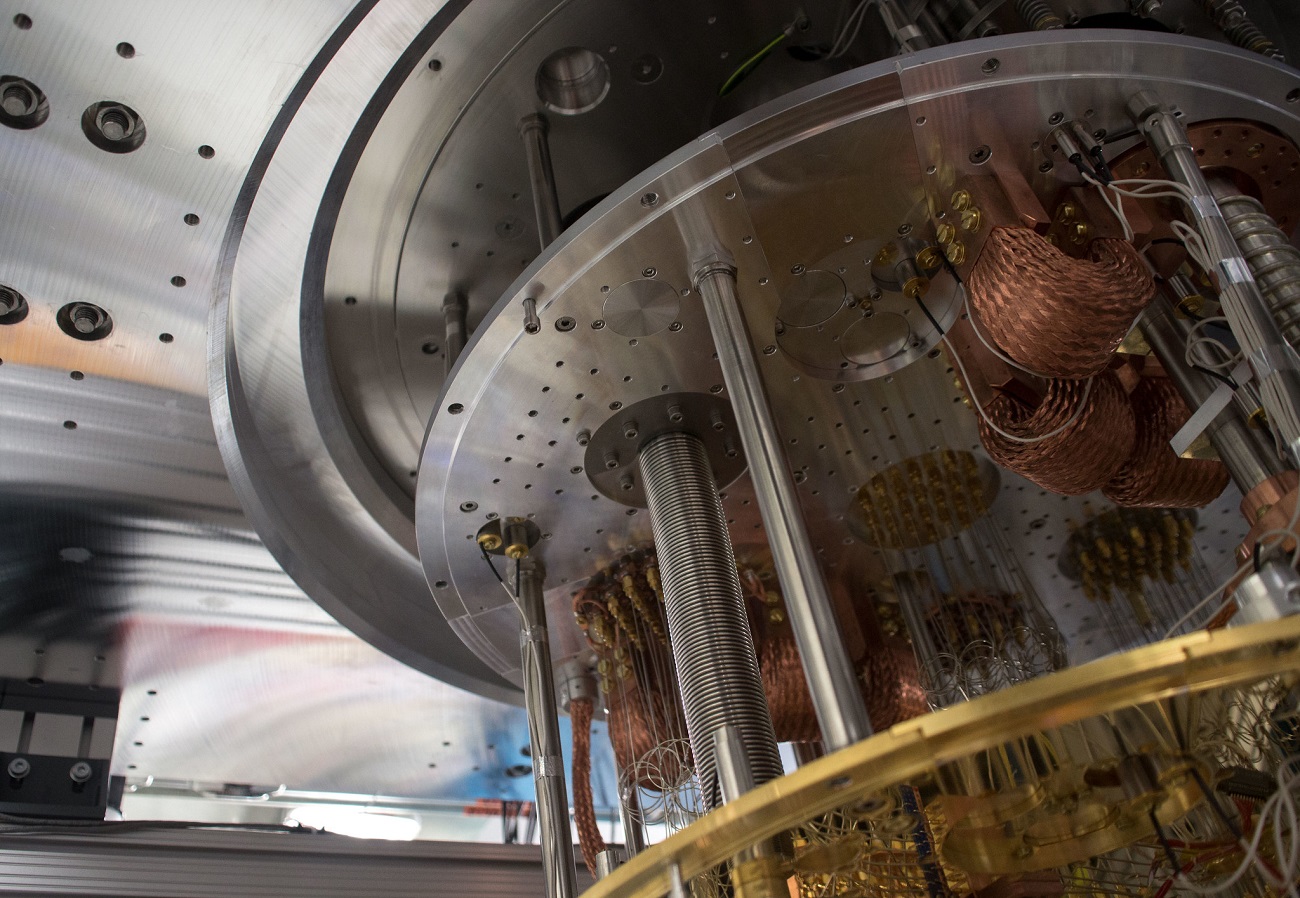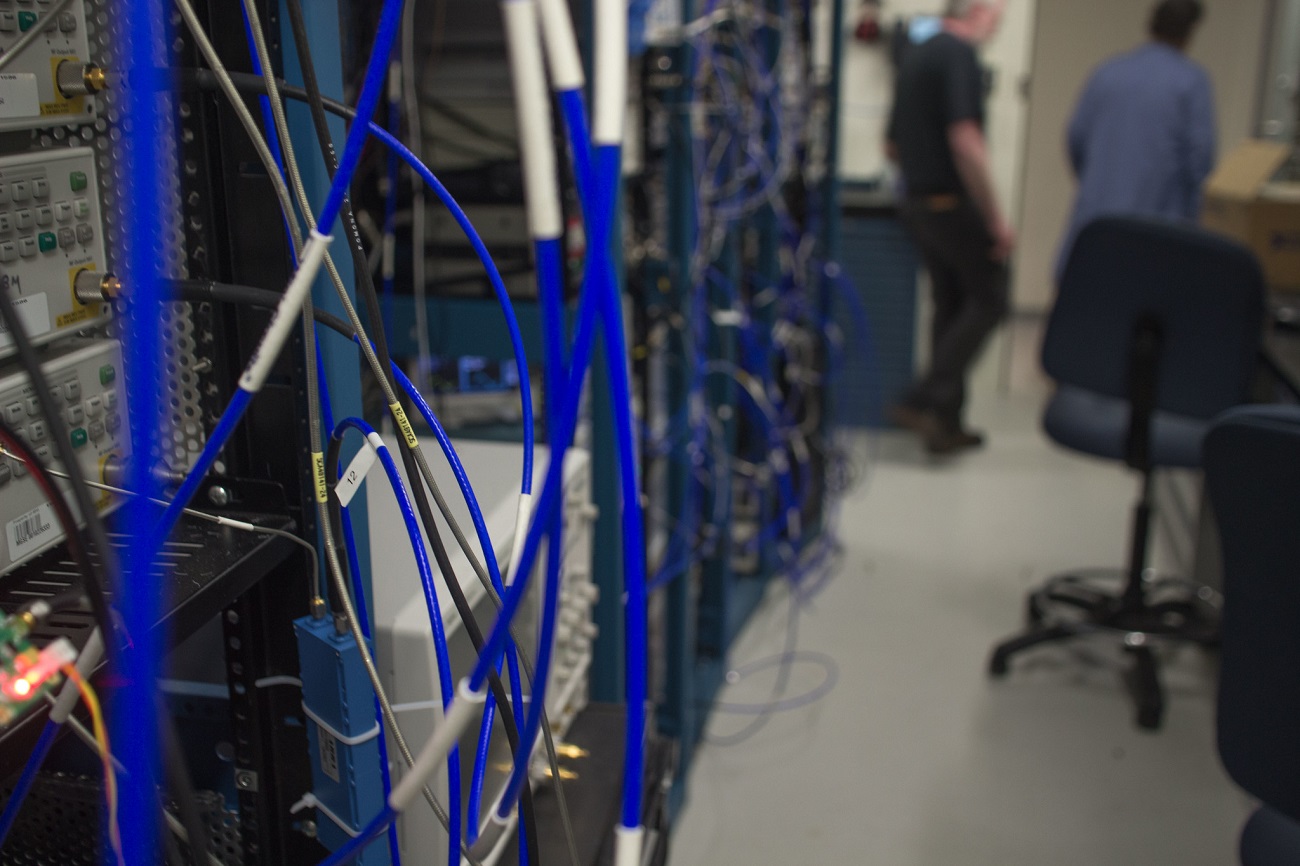Lack of helium can slow down the development of quantum computers - discuss the situation
We talk about the prerequisites and present the opinions of experts.

/ photo IBM Research CC BY-ND
Why do we need helium in quantum computers?
Before turning to the story of the situation with the lack of helium, let's talk about why quantum computers need helium at all.
Quantum machines operate on qubits. They, unlike classical bits, can be in states 0 and 1 at the same time - in superposition. The phenomenon of quantum parallelism arises in the computer system, when operations are performed simultaneously with zero and one. This feature allows qubit-based machines to solve some tasks faster than classic computers — for example, to model molecular and chemical reactions.
')
But there is a problem: qubits are fragile objects and they can support only a few nanoseconds of superposition. Even a slight fluctuation in temperature violates it, and so-called decoherence occurs. In order to avoid the destruction of qubits, quantum computers have to work at low temperatures - 10 mK (–273.14 ° C). To achieve temperatures close to absolute zero, companies use liquid helium, or more precisely, helium-3 isotope, which does not solidify under such extreme conditions.
What is the problem
In the near future, the IT industry may face a shortage of helium-3 to develop quantum computers. On Earth, this substance is almost not found in its natural form - its volume in the planet’s atmosphere is only 0.000137% (1.37 parts per million relative to helium-4). Helium-3 is the product of the decay of tritium, whose production was stopped in 1988 (the last heavy-water nuclear reactor was shut down in the United States). After tritium began to extract from the components of decommissioned nuclear weapons, but according to the research service of the US Congress, this initiative did not allow a significant increase in stocks of strategic substances. Russia and the United States have some of its reserves, but they are coming to an end .
The situation is aggravated by the fact that quite a significant part of helium-3 is spent on the production of neutron scanners used at border crossings to search for radioactive materials. The neutron scanner is an indispensable tool at all US customs since 2000. Due to a number of these factors in the US, helium-3 supplies are already controlled by government agencies that issue quotas to state and private organizations, and IT experts worry that soon there will not be enough helium-3 for everyone.
How bad
It is believed that the lack of helium-3 will have a negative impact on quantum design. Blake Johnson, vice president of quantum computers manufacturer Rigetti Computing, told the MIT Tech Review that refrigerant is incredibly difficult to get. Problems are aggravated by its high cost - it takes 40 thousand dollars to fill a refrigeration unit.
But representatives of D-Wave, another quantum startup, disagree with Blake's opinion. According to the vice-president of the organization, only a small amount of helium-3 is spent on the production of a quantum computer, which can be called insignificant compared to the total available volume of the substance. Therefore, a refrigerant shortage will not be visible to the quantum industry.
Plus, other methods of helium-3 extraction not related to tritium are being worked out today. One of them is the production of isotopes from natural gas. First, it undergoes deep condensation at low temperatures, and then passes through the processes of separation and rectification (separation of gaseous impurities). Previously, this approach was considered economically inexpedient, but with the development of technology, the situation has changed. Last year, Gazprom announced its plans to start production of helium-3.
A number of countries are making plans for the extraction of helium-3 on the moon. Its surface layer contains up to 2.5 million tons (tab. 2) of this substance. Scientists estimate that the resource will last for five millennia. NASA has already begun to create projects of plants that process regolith into helium-3. The development of relevant terrestrial and lunar infrastructure are engaged in India and China . But to realize it in practice will not turn out before 2030.
Another way to prevent helium-3 deficiency is to find a replacement for it in the production of neutron scanners. By the way, it was already discovered in 2018 - it became zinc sulfide crystals and lithium fluoride-6. They allow you to register radioactive materials with an accuracy greater than 90%.

/ photo IBM Research CC BY-ND
Other "quantum" problems
In addition to the lack of helium, there are other difficulties that hinder the development of quantum computers. The first is the lack of hardware components. In the world so far few large enterprises engaged in the development of "stuffing" for quantum machines. Sometimes companies have to wait until the cooling system has been manufactured for more than a year .
A number of countries are trying to solve the problem through government programs. Such initiatives have already been launched in the USA and Europe. For example, most recently in the Netherlands, with the support of the Ministry of Economy, Delft Circuits was launched. It manufactures components for quantum computing systems.
Another difficulty is the lack of specialists. The demand for them is growing, but finding them is not so easy. According to the NYT, experienced "quantum engineers" in the world are not more than a thousand. The problem is solved by leading technical universities. For example, MIT is already creating the first programs for training specialists in working with quantum machines. The development of relevant academic programs involved in the US National Quantum Initiative.
In general, IT experts are convinced that the problems facing the creators of quantum computers, are quite surmountable. And in the future we can expect new technological breakthroughs in this area.
What are we writing about in the first corporate IaaS blog:
- Year in action: who and for what was punished according to the GDPR
- The development of data centers: technological trends
- How to improve the energy efficiency of the data center
- Why companies use virtual machines, not containers
- How IaaS helps grow your business: three tasks that the cloud will solve
- Serverless computing in the cloud - a trend of modernity or necessity?
- How to test disk system in the cloud
Source: https://habr.com/ru/post/452424/
All Articles